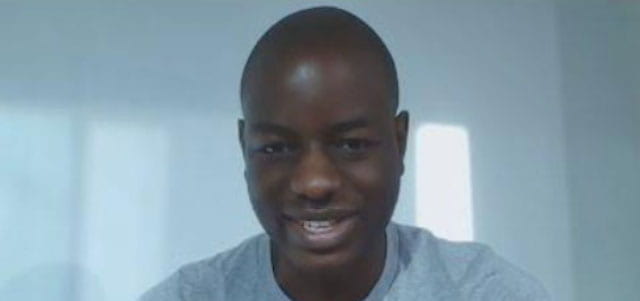Victory Omole, a quantum software engineer at Duality Cohort 1 participant Super.tech, has been awarded the 2021 Wittek Quantum Prize for Open Source Software, a high honor in the field that recognizes his commitment to advancing understanding of quantum computing.
Omole, 25, is the second recipient of the annual prize, which is awarded by the Quantum Open Source Foundation (QOSF) and Unitary Fund, a quantum research and grant-making nonprofit.
“Victory deserves this prize due to his continuous and enthusiastic support of open quantum software mainly, but not only, through his outstanding involvement with Cirq,” according to the award announcement Thursday. “The jury recognized his outstanding efforts when it came to improving the Cirq library, building the community and actively participating in the weekly developer meetings. His open source work truly demonstrates his strong dedication to the quantum ecosystem.”
The $4,000 prize was created to honor Peter Wittek, a founding member of the Quantum Open Source Foundation, who in 2019 disappeared during an avalanche in the Himalayas. The awards committee, comprised of the Unitary Fund’s Advisory Board, received 38 nominations from across the globe and narrowed the field down to seven strong candidates before selecting Omole as winner by ranked-choice voting.
Omole has been contributing to open source quantum software since 2018, helping to patch bugs, maintain and document the programming libraries, and familiarize the community with the software. He started with Rigetti’s quantum software library Pyquil and later Google’s Cirq.
He has since contributed more than 120 pull requests to Cirq in his free time, an “incredible feat” that “shows dedication, self-discipline, consistency and relentless devotion to the ideas & philosophies of open source software,” according to the award announcement.
Omole is the most prolific non-Googler contributing to Cirq, and has become so valued by the community that he is the first non-Google developer to lead the weekly Cirq developer meetings. He is also an active member of the Quantum Computing StackExchange, where he is in the top 16% of all users and has reached over 42,000 people with his questions and answers.
“Open source matters to me because it is how I learned to program,” Omole said. “I would find these quantum libraries, study the source codes, run the programs and look at how they behave. I feel like I am obligated to give back to people coming after me.”
 Omole was born in Kenya and moved to the U.S. when he was 9 years old, first to upstate New York so his father could study chemistry and later to Iowa, where his father got a job as a research scientist. Always a builder, Omole attended Iowa State University for computer engineering.
Omole was born in Kenya and moved to the U.S. when he was 9 years old, first to upstate New York so his father could study chemistry and later to Iowa, where his father got a job as a research scientist. Always a builder, Omole attended Iowa State University for computer engineering.
Curious about all sorts of technologies, Omole became interested in quantum computing his junior year, in 2016, and with an advisor he crafted an independent study course on quantum technology. That advisor paid for him to go to California for an electronic design automation conference, where he met people working in the quantum industry and began to immerse himself in the community. All the while he participated in numerous hackathons with quantum-related projects, and was part of a group that won the hacker prize at Hack Harvard 2017 with a project titled “Visualizing Quantum Algorithms on the Web Browser.”
Omole got a job as a software engineer after a college, and worked on quantum projects during the weekends as a hobby. In 2019, he attended the Quantum Information Processing Conference, where he met Pranav Gokhale, cofounder and CEO of Super.tech. Two years later, Gokhale hired Omole as Super.tech’s first full-time employee.
“We were eager to hire Victory as our first full-time employee, because he is the most technically principled and intellectually curious quantum software engineer we’ve met,” Gokhale said. “Victory has directly translated his passion and skills directly into Super.tech‘s software, which embraces open source solutions.”
Omole now lives in Chicago’s Hyde Park neighborhood, walking distance from Super.tech’s offices at the Chicago Quantum Exchange, where the startup is operating during its yearlong tenure at Duality. Super.tech, which develops optimizing software for quantum programs and hardware, is one of six startups in the inaugural cohort of Duality, the nation’s first dedicated quantum startup accelerator that provides mentorship, business education, corporate networking opportunities, office space, lab access, and funds.
Duality is run by the Polsky Center for Entrepreneurship and Innovation alongside the Chicago Quantum Exchange and in partnership with Argonne National Laboratory, University of Illinois Urbana-Champaign, and P33.
Omole said he was surprised to learn he won the Wittek award. He didn’t know he had been nominated.
He spends countless hours contributing to open source quantum software because he believes it is the best way for others to learn the rapidly evolving field and wants to do all he can to support advances in quantum computing.
“We are deciding to be part of a scientific revolution,” Omole said. “Whatever I can do to see a full-scale quantum computer in my lifetime, I will do it.”

